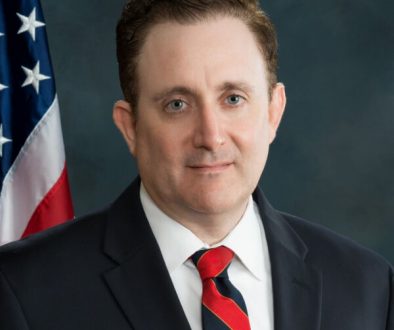Another courageous scientist
The following interview is with a scientist who wishes to remain anonymous. Her determination to pursue a scientific career without conducting animal experiments is an example for others to follow.
Antidote Europe (AE). Our organisation from time to time receives calls from science or biology students who do not want to experiment or dissect animals as part of their curriculum, asking us for advice. Could you describe your experience as an undergraduate student and what strategy you employed in order stick to your principles of not harming animals and yet obtain your degree?
Anonymous scientist (AS). I performed my studies in British Universities (UMIST in Manchester, UCL in London, University Oxford) and from the very beginning I made it clear that I would not perform dissections on animals or experiments involving animals. I was never forced to do these experiments, but later on during my DPhil degree in Oxford did my supervisor (a senior professor) express his discontent at the fact that I did not want to be involved in those parts of the project that required the use of organs, taken from mice, to demonstrate the expression of a protein that we were studying. Another student was assigned the work with the mice organs while I investigated the molecular biology, and although I was more senior, the other student’s name appeared first on the paper.
Although I managed to stick with my principles it is quite possible that a young scientist would find it difficult to say “no” because it is often implied that if you do not agree in doing what you are told, and what is perceived to be necessary for publications, either you won’t receive your PhD or it would be much harder to do so. This is unfortunately still true, as research on animals is perceived by the “established professors” and “long-time heads of labs” to be necessary for the advancement of research and compulsory for publication in journals with a high impact factor. A friend of mine, who, although Buddhist and vegetarian, and opposed to any form of animal experiment, on both scientific and ethical grounds, was forced to do them in order to complete her PhD.
My strategy was simple, I made it very clear at the outset that that I would not perform animal experiments, firstly because I did not believe they were scientifically valid, including the extrapolation of animal data to humans, and secondly, because it would constitute an affront to my belief that animal lives have intrinsic value and are not commodities to be used by humans. I base my ideological beliefs on the Universal Declaration of Human Rights, Article 18: “Everyone shall have the right to freedom of thought, conscience and religion. This right shall include freedom to have a religion or whatever belief of his [her] choice.” The 1981 UN Declaration on the Elimination of All Forms of Intolerance and of Discrimination Based on Religion or Belief, Article 1 also states: Legal Definition Right to thought, conscience, and religion or belief; Right to have a religion or whatever belief of your choice; And the “Right not to suffer coercion that impairs the freedom to choose a religion or belief.” According to these basic and established rights, no one should be obliged to perform animal experiments, including a scientist who does not want to do so. Furthermore, in Italy, the first country in EU to have a specific law on this issue, a scientist opposed to performing animal experiments is considered a “conscientious objector”.
For example the objecting co-author in a joint paper can add a note to her/his name along the lines: “Note: The Author states to disagree with the use of animals and animal models in research. As an author s/he is only responsible for the inclusion of the in vitro research and human studies reported in this publication. S/he is a “conscientious objector”, according to the Italian Law: “Legge n. 413 del 12 ottobre 1993” entitled “Norme sull’obiezione di coscienza alla sperimentazione animale” (Italian Law on “conscientious objection to animal experiments”).
A choice of this kind will permit authors to express their view, yet allow them to be included in collaborative research without compromising their principles, and communicate her/his beliefs as an example to others.
AE. Although your original objection to using animals may have been for moral reasons, at what point in your career did you decide that using animals was not relevant to human health?
AS. In my case it was from the very beginning of my studies as it appeared unscientific and rather crude to test something on an animal, or mimic a human disease on an animal, or even modify the DNA structure of an animal to include human genes, and then say that this constitutes a model for a human and to reach scientific conclusions on this basis. I soon began to appreciate the genetic differences between individuals of the same species and realised the effects that the environment (diet, lifestyle, etc) has in the expression of our particular genes, the interactions between our genes and the proteins in the body, which are unique to us, as well as the specific and complex responses of an individual“s immune system to external agents and to the environment, which are also very specific to humans and different from animals. It then appeared clear that giving scientific credo to animal experiments for finding cures to human diseases and applying animal data to humans was rather an act of faith than an exercise in scientific reasoning that scientists were being asked to do in order to answer questions of human disease.
AE. You are currently employed as a research scientist. Could you describe in lay terms your particular field of research?
AS. At them moment I am applying for various research grants involved in translational research. This involves taking samples from patients in order to try to answer questions about a particular disease (e.g. chronic obstructive pulmonary disease or OCPD, cardiovascular diseases etc) that can directly impact on the health of the patient, in a process that can be defined as “bench to bedside” and vice versa. I am also applying for research grants to both use and develop replacement methods to animal experiments. I am also involved in the creation of a human samples BioBank that can be used by research scientists for basic and applied research and be translated more quickly and efficiently into medical practice and cures for human diseases. This is in addition to my teaching to University students and recent government funding to create a Course in Alternatives to Animal Experiments, in collaboration with a well-established University in Rome, which supports the aim of disseminating knowledge on non-animal methods to post-graduate students who represent the future of basic and applied research.
AE. Are you, or have you been, the victim of institutional intimidation because of your objection to animal experiments? If so, how did you cope and what is your advice to people who encounter this phenomenon?
AS. Well, this is something difficult to discuss and hard to prove. The line distinguishing “institutional intimidation” from “obstruction from doing research” and “discrimination on the basis of the belief that animal experiments are unnecessary as well as cruel” is very thin. It is true that working within a “conventional” laboratory at a standard institution is still quite difficult in terms of openly expressing your ideas without being ridiculed, strongly opposed or personally criticised. I have chosen to be open about this and to not work “undercover” mainly for two main reasons: first I think that in order to change the old system we have to be an example of the new world that we would like to be in, so we, the “alternative” scientists, have to show what we believe and make other scientists emulate us, or at least, stop and think. Second because other scientists who have already questioned the status quo, when looking at others opposing the conventional view of doing research, can decide to also to express their ideas, share them with others and show their opposition to research that still use animals, which are obsolete and myopic as well as being unscientific.
And, moreover, as George Bernard Shaw once said: “You do not settle whether an experiment is justified or not by merely showing that it is of some use. The distinction is not between useful and useless experiments, but between barbarous and civilized behaviour.” Even if scientists could solve medical problems and find cures to human diseases by “experimenting” on people not willing to be such subjects, it would not be accepted as “right” by civil society to do so, in the same way that we should extend the same “rights” to other species, other living beings for which we should be responsible the same exact way that we are for our species.
AE. Thank you very much for your time. Are there any topics that you would like to address that were not covered in this interview?
AS. I would like to emphasise again two issues: education and courage. Education on replacements to animal experiments, at University level in faculties of biology, medicine, chemistry and every scientific and medical discipline is absolutely crucial. At the moment the system teaches or uses animals in research or education but it should provide a Course on Alternatives to educate future research scientists to use, develop and improve those alternative methods of research that replace animal experiments, in Universities, private institutes, research centres for industries etc. Second is courage, courage to change and to prompt change in others, to say no to the status quo, to respect other sentient beings, even if they are different from our species, to respect and protect the basic right of existence of animals and finally to oppose both scientifically and ethically the use of animals in the name of “science”, “research” or “medical advancement”. If we are true to ourselves we should know that any experiment that is unacceptable for a human being should also be unacceptable on an animal.




